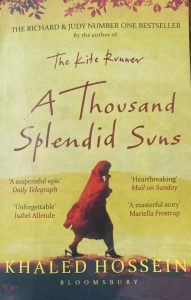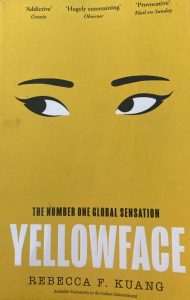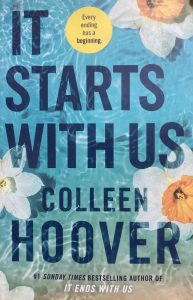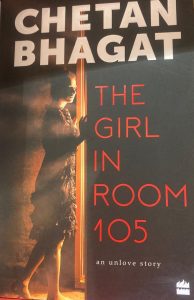Table of Contents
Toggle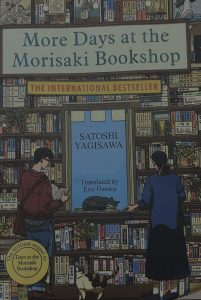 Book Review
Book Review
More Days at the Morisaki Bookshop is the sequel to Days at the Morisaki Bookshop. It takes us back to Jinbōchō, Tokyo’s famous district of second-hand bookstores, and to the eponymous Morisaki Bookshop, where ordinary days carry extraordinary emotional weight.
The story picks up several years after the first book. Takako, our protagonist, has moved out from the apartment above the shop, rebuilt her life after the heartbreak she once experienced, and is now more settled. Meanwhile, family ties, friendships, the presence of regular customers, and the bookstore itself all remain — but now come with new challenges, deeper emotional stakes, and the shadow of loss.
In More Days at the Morisaki Bookshop, the author gives the characters more growth and depth. Takako now has a job, a more stable social life, and a boyfriend named Wada. Her relationship with her aunt Momoko and uncle Satoru remains at the heart of the story.
Her aunt Momoko is suffering from cancer, and there are several poignant and difficult moments surrounding her illness and how the family copes with it.
The bookshop itself feels even more alive in this installment. Its regulars remain essential to the story, while new faces bring fresh color — eccentric visitors like the “paper bag man,” collectors who seek rare stamps in books, and customers who carry emotional stories of their own. The shop faces uncertainty — emotional, physical, and even financial — as Satoru contemplates whether it should remain open.
More Days at the Morisaki Bookshop revisits themes of memory, loss, and the quiet endurance of life. Many of its most moving moments are small — a familiar scent, an old comment, a fleeting memory — yet these details often resonate more deeply than the larger plot points.
The relationships between Takako, Satoru, and Momoko — and between the shop and its loyal customers — form the emotional core of the book. The Morisaki Bookshop serves as a nexus of connection, a place where people find belonging and solace.
Yagisawa’s writing is understated yet profoundly moving. The novel doesn’t depend on twists or drama; instead, it dwells on the quiet beauty of human connection, the comfort of routine, and the magic of books as steadfast companions. Like its predecessor, it celebrates healing and self-discovery, but with greater maturity and emotional richness.
Readers who enjoyed Before the Coffee Gets Cold or The Cat Who Saved Books will likely find the same sense of warmth here — a story that feels like a gentle conversation with an old friend.
In this book, the love of reading isn’t merely a pastime — it’s a form of healing. Takako and others are shaped by the books they read, the stories they revisit, and the rituals of searching and shelving. Reading becomes a bridge — between people, between past and present, between what was lost and what endures.
What I don’t like about the book?
- If you’re looking for a fast-paced story, big twists, or dramatic turns, this book might not be for you. Many readers find the beginning particularly slow, as much of it focuses on atmosphere and character development rather than advancing the plot.
- Sometimes the story progresses at a slow pace, which could challenge the patience of readers who enjoy a quicker-moving plot.
- While cozy for much of the book, there is a more melancholic side, especially in relation to Momoko’s health and how death or loss is handled. For some, this shift could feel heavy or bordering on emotionally overwhelming.
- The focus on books and healing is heartwarming, but it can feel repetitive if you’re looking for more variety in themes or conflicts.
About Author
Satoshi Yagisawa is a Japanese novelist known for his tender, atmosphere-rich writing that celebrates the quiet, everyday beauty of life—especially through the lens of bookstores, relationships, and second chances. His debut novel, Days at the Morisaki Bookshop, won the prestigious Chiyoda Literature Prize (Chiyoda Literary Award) in 2008 and became a national bestseller in Japan. It was adapted into a film the following year.
More days at the Morisaki Bookshop is translated by Eric Ozawa is a writer and translator who was born in Tokyo and raised in the United States. He has covered the on-going nuclear crisis and the aftermath of Japan’s 11 March earthquake and tsunami for The Nation magazine. He lives in New York where he teaches writing at New York University. ‘O-bakanaru’ is an excerpt from a novel in progress. Also, many of his translations from Japanese have been featured in exhibitions around Japan and at the Metropolitan Museum of Art.
Conclusion
More Days at the Morisaki Bookshop is a tender and thoughtful story that celebrates books, belonging, and the quiet joys of everyday life. A wonderful sequel—and a gentle reminder that new chapters are always waiting to begin.
The novel masterfully captures a sense of place and mood. The cozy bookstore, the charming neighbourhood, and the simple rituals like brewing tea, arranging books, and engaging in conversations pull you in, making the reading experience warm and inviting.
Everything is shifting in More days at Morisaki Bookshop—health, relationships, personal growth—yet so much stays constant: the bookshop, the smell of books, the routines, the familiar faces that come back. This balance between what lasts and what needs to be let go adds a poignant depth.

